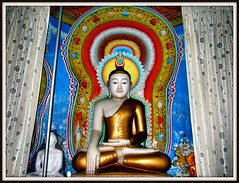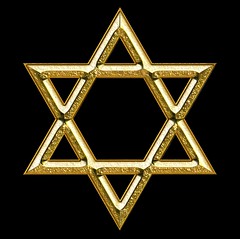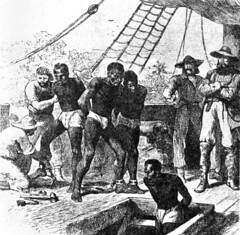| 7568376400 | specialization | to focus in on one specific task and get good at it |  | 0 |
| 7568376401 | Paleolithic Era | time period of the Stone Age where people focused on hunting and gathering and language was not yet spoken |  | 1 |
| 7568376402 | Neolithic Era | also called the New Stone Age; classified by people beginning to establish villages and civilizations through farming. Language was developed, making it the defining characteristic of the start of this period. |  | 2 |
| 7568376403 | cuneiform | first written language; originated in Mesopotamia |  | 3 |
| 7568376404 | hieroglyphics | written language by the Egyptians; pictures stand for words |  | 4 |
| 7568376405 | Rosetta Stone | used to help interpret hieroglyphics |  | 5 |
| 7568376406 | Hammurabi's Code | strict Babylonian law that was used to enforce order in society; ex. an eye for an eye, a hand for a hand |  | 6 |
| 7568376407 | Buddhism | ancient religion founded in India by Siddhartha Gautama; goal is to reach Enlightenment or nirvana |  | 7 |
| 7568376408 | 4 Noble Truths | guides the religion of Buddhism |  | 8 |
| 7568376409 | Middle Way | In Buddhism, this is the in-between being a total ascetic and living a life of pure luxury |  | 9 |
| 7568376410 | Moksha | in Hinduism, this is the term that means you are released from Samsara (cycle of birth, death and rebirth) |  | 10 |
| 7568376411 | Judaism | first monotheistic religion founded by Abraham |  | 11 |
| 7568376412 | Confucianism | religion/way of life that emphasizes respect for elders and traditional values |  | 12 |
| 7568376413 | hunter-gatherer | earliest way of life in which people would search and kill animals for their food |  | 13 |
| 7568376414 | Agricultural Revolution | period of time where people moved from hunting and gathering to permanent villages where they would farm for life |  | 14 |
| 7568376415 | Persian Wars | series of wars between Greek city-states and the Persians for control of the Peloponnesian Peninsula |  | 15 |
| 7568376416 | Herodotus | Greek; known as the "father of history" |  | 16 |
| 7568376417 | The Royal Road | highway through the Persian empire used to exchange goods and services easier/quicker |  | 17 |
| 7568376418 | democracy | government by the people; first seen in Athens, Greece |  | 18 |
| 7568376419 | Thucydides | historian that studied Athens and Greek history and wrote detailed accounts about them |  | 19 |
| 7568376420 | Sparta | militarily strong Greek city-state; Council of Elders ruled their government |  | 20 |
| 7568376421 | Athens | democracy Greek city-state; led by the Council of 500 to rule their government; intelligence/schooling was the focus of their society |  | 21 |
| 7568376422 | Olympia | place in Greece where the Greek gods lived |  | 22 |
| 7568376423 | Ionia | wanted to gain independence away from the Persians, thus choose to align themselves with the Greeks, starting war with between the Greeks and Persians |  | 23 |
| 7568376424 | Alexander the Great | greatest leader of Greek times; was able to conquer large area of the Mediterranean; gave way to the Hellenistic Period |  | 24 |
| 7568376425 | Golden Age of Greece | period of time where Greece was at peace and society was prospering/growing |  | 25 |
| 7568376426 | Hellenistic Period | time where Greek ideas/culture was spread all over the Mediterranean |  | 26 |
| 7568376427 | Christianity | religion in which Jesus is said to be the Messiah; monotheistic |  | 27 |
| 7568376428 | Patricians | Rich, upper-class in early Roman society |  | 28 |
| 7568376429 | Plebians | lower class; usually peasants in Roman society |  | 29 |
| 7568376430 | Punic Wars | battles between Carthage and Rome over control of the Mediterranean, Spain and Italy |  | 30 |
| 7568376431 | Pax Romana | time period of Roman Peace; trade flourished and Christianity fled |  | 31 |
| 7568376432 | princep | highest title given to a Roman citizen; also means first citizen |  | 32 |
| 7568376433 | Marcus Aurelius | Roman emperor from 161-180; is seen as the last great Roman emperor out of the 5 good emperors |  | 33 |
| 7568376434 | Julius Caesar | Roman emperor who helped to bring Rome to peace and grow the economy; was murdered in fear of his growing strength |  | 34 |
| 7568376435 | Caesar Augustus | named first "princep"; most popular Roman Emperor who conquered much of the Mediterranean |  | 35 |
| 7568376436 | Divide of Rome | split into the East and West; East continued to survive for years to come, while the west would eventually fall |  | 36 |
| 7568376437 | Byzantine Empire | continued to exist in the East, even after the Roman Empire Fell; new name given to this empire |  | 37 |
| 7568376438 | aqueducts | Roman invention that was used to transport water from place to place |  | 38 |
| 7568376439 | public bath | place where Roman citizens would gather to bathe together |  | 39 |
| 7568376440 | Fall of Western Roman Empire | empire fell due to invaders, weakening leaders, struggling economy (inflation) and an empire that was too large to control |  | 40 |
| 7568376441 | Constantine | emperor of the Byzantine empire who made Christianity the official religion of the empire |  | 41 |
| 7568376442 | Aztecs | group located in central Mexico; sacrificed thousands of people to their gods and had floating gardens on the land that they lived |  | 42 |
| 7568376443 | Mayans | early society located on the Yucatan Peninsula in Mexico; known for creating their own calendars and slash/burn farming; never fell, instead some of their culture has faded into the jungle |  | 43 |
| 7568376444 | Incas | early civilization located in the Andes mountains; is known for its extensive roads and quipu communication system |  | 44 |
| 7568376445 | Vedic India | first society after the fall of the Indus River Civilization ran by the Aryan people |  | 45 |
| 7568376446 | varnas | classes in Aryan society |  | 46 |
| 7568376447 | dynasty | a line of hereditary rulers; mostly seen in China |  | 47 |
| 7568376448 | Qin Dynasty | ruler was Shi Huangdi; built the Great Wall of China; known for using harsh Legalist policies that included book burning of Confucian scholars |  | 48 |
| 7568376449 | Shi Huangdi | emperor during the Qin Dynasty; put into effect Legalism; Terra Cotta Army buried with him |  | 49 |
| 7568376450 | Great Wall of China Uses | defense and trade |  | 50 |
| 7568376451 | Mandate of Heaven | gave reason for the change in the dynastic cycle; for all the good that occurred, so would dynastic leaders stay in power; when something bad occurred it would tell the people that dynasties needed to switch power |  | 51 |
| 7568376452 | dynastic cycle | period of time of Chinese rulers |  | 52 |
| 7568376453 | civil servants | government employees who gained their positions through merit in China |  | 53 |
| 7568376454 | civil service exam | extremely difficult test given to those who wanted to serve in the government; based on Confucian thought |  | 54 |
| 7568376455 | Legalism | policy created by Shi Huangdi |  | 55 |
| 7568376456 | Daoism | seeks harmony through nature and balance |  | 56 |
| 7568376457 | Jainism | belief in nonviolence; branch of Hinduism |  | 57 |
| 7568376458 | Chandragupta Maurya | founded the Mauryan dynasty in India |  | 58 |
| 7568376459 | Ashoka | united India and the Maurya dynasty under the religion of Buddhism |  | 59 |
| 7568376460 | Genghis Khan | united the Mongols and invaded China |  | 60 |
| 7568376461 | Kublai Khan | was able to conquer China and spread Mongol influence throughout Asia |  | 61 |
| 7568376462 | Silk Road | most ancient and important trade route that stretched from Asia to Europe |  | 62 |
| 7568376463 | Pax Mongolica | Period of Mongol Peace |  | 63 |
| 7568376464 | Marco Polo | Italian explorer who found the glories of China, wrote a book and shared his traveling experiences |  | 64 |
| 7568376465 | Swahili | language and culture of Eastern Africa Cities |  | 65 |
| 7568376466 | West African Kingdoms | early kingdoms of Ghana, Mali and Songhai |  | 66 |
| 7568376467 | African Trade | most important products were gold and salt |  | 67 |
| 7568376468 | Timbuktu | major Islamic city of learning and trade | 68 | |
| 7568376469 | Mansa Musa | traveler from Mali on a pilgrimage to Mecca; spread Islam and put Mali on the map; was known for carrying gold and simply giving it away on his journey; built up the city of Timbuktu with Muslim culture |  | 69 |
| 7568376470 | Islam | religion founded by the prophet Muhammad; follows the 5 Pillars as a guide to this religion |  | 70 |
| 7568376471 | Groups of Islam | Sunni (believe anyone can be a ruler of Islam) and Shiah (believe only Muhammad's descendants can be rulers of Islam) |  | 71 |
| 7568376472 | Muhammad | founder of Islam; known as the Islamic prophet/messenger of God |  | 72 |
| 7568376473 | Qur'an | the holy book of Islam |  | 73 |
| 7568376474 | Allah | Islamic word for God |  | 74 |
| 7568376475 | Orthodox Church | the eastern church of the Byzantine Empire |  | 75 |
| 7568376476 | Hagia Sophia | symbol of the Eastern Orthodox Church |  | 76 |
| 7568376477 | feudalism | system of loyalty in which Kings, Nobles, Knights and Serfs worked together to protect each other and create a society of order |  | 77 |
| 7568376478 | Black Plague/Black Death | deadly disease that wiped out 1/3 of Europe's population; led to an age of increased ideas and knowledge |  | 78 |
| 7568376479 | Charlemagne | Frank King who was able to unite much of Europe under one Christian empire |  | 79 |
| 7568376480 | guild | a medieval association of craftsmen or merchants, often having considerable power |  | 80 |
| 7568376481 | chivalry | code lived by all Knights during feudal times |  | 81 |
| 7568376482 | theocracy | government in which the person who is in charge is a representative of the church; church rules government |  | 82 |
| 7568376483 | monarchy | government where the king is in charge; when the king dies, his heir (often his son) takes over |  | 83 |
| 7568376484 | Great Schism | Split between the Christian Church into Eastern and Western Churches |  | 84 |
| 7568376485 | Crusades | religious holy wars petitioned by the pope to reclaim the holy land |  | 85 |
| 7568376486 | Renaissance | rebirth of knowledge |  | 86 |
| 7568376487 | Greek/Roman Influence | brought back during the Renaissance as the cultural hearth of development |  | 87 |
| 7568376488 | Italy | place where the Renaissance began |  | 88 |
| 7568376489 | Goal of Renaissance | focus on individuality, art, culture, innovation, etc. |  | 89 |
| 7568376490 | Martin Luther | led the Protestant Reformation by questioning the practices of the Catholic Church |  | 90 |
| 7568376491 | Saladin | Muslim commander who befriended Richard the Lion Hearted to win the 3rd Crusade |  | 91 |
| 7568376492 | Justinian | Byzantine ruler who re-codified laws for all citizens |  | 92 |
| 7568376493 | Protestants | those who supported the Reformation |  | 93 |
| 7568376494 | Jesuits | religious group who came out of the Reformation that followed the Bible strictly and set up schools of religious learning |  | 94 |
| 7568376495 | printing press | credited to be invented by Johannes Gutenberg; helped to spread religious thought because everyone could get the information |  | 95 |
| 7568376496 | Catholic Church during the Reformation | decreased in power |  | 96 |
| 7568376497 | 95 Theses | pinned to the door in Wittenberg accusing the Catholic Church of all of their wrongdoings |  | 97 |
World History Quarter 1 Review Flashcards
Primary tabs
Need Help?
We hope your visit has been a productive one. If you're having any problems, or would like to give some feedback, we'd love to hear from you.
For general help, questions, and suggestions, try our dedicated support forums.
If you need to contact the Course-Notes.Org web experience team, please use our contact form.
Need Notes?
While we strive to provide the most comprehensive notes for as many high school textbooks as possible, there are certainly going to be some that we miss. Drop us a note and let us know which textbooks you need. Be sure to include which edition of the textbook you are using! If we see enough demand, we'll do whatever we can to get those notes up on the site for you!

